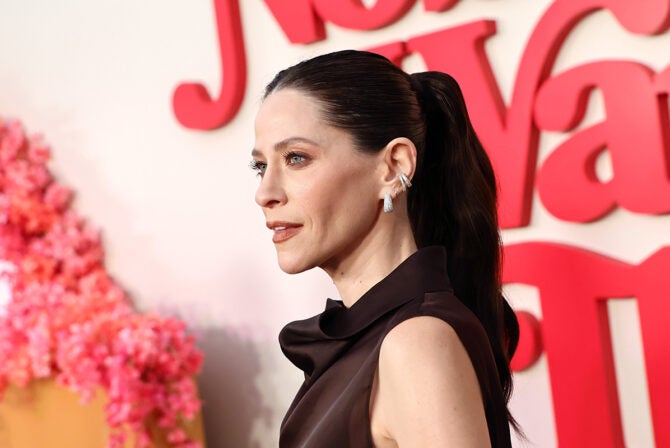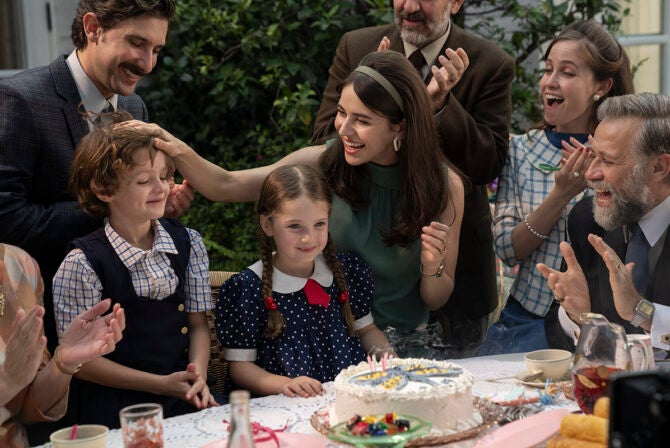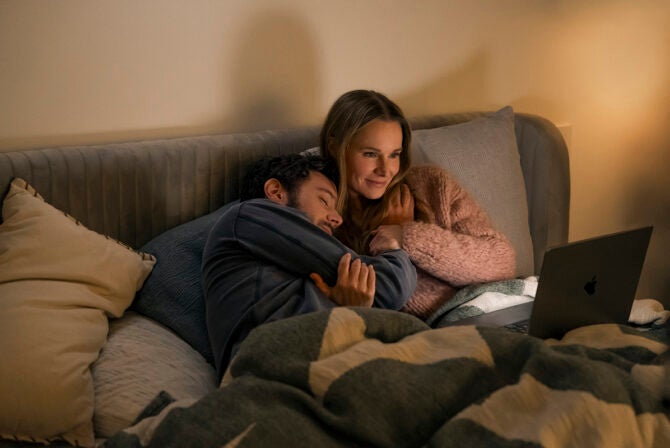The question of whether or not to raise our children Jewish wasn’t one that my husband and I ever clearly articulated–but it’s what’s happening.
I came late to the party, as far as Judaism is concerned. I didn’t convert formally until I was in my mid-30s, and by then I had already had my first child. It’s not that we didn’t talk before we had children–we did, endlessly. Neither one of us wanted to give up our traditions, and we both wanted to raise our kids to honor and celebrate both sides of their family tree. We understood that there would have to be a lot of on-going compromise, patience, and discussion.
We approached religion and spirituality from two very different places. For my husband, Judaism was about identity, Israel, and belonging to a People. For me, religion was the opposite of spirituality. I grew up Catholic, and had dabbled in Wicca and a free-flowing sort of Paganism. For me, spiritual identity was tied less to a specific religious path and more to traditions and heritage that weren’t necessarily religious. Organized religion made me uncomfortable; the idea of belonging to a religious community was foreign to me.
Identity was the challenging part–our children would be Jewish and not Jewish at the same time. When I was pregnant with our first, I knew that she would be blending my heritage and traditions with my husband’s–and I worried about how to help her do that.
I knew I wanted my daughter to know about God, to help her understand the world, and her place in it. And I wanted her to appreciate and feel a part of her father’s traditions as well as mine. I didn’t want her to have to choose–to feel as though her dad was one thing, and I was another. I didn’t want a fractured family, where only some of us were Jewish. I wanted her to feel as comfortable claiming her Jewish identity as she could, but I couldn’t help her be Jewish without understanding what that meant. I still didn’t think that I wanted to convert, but I knew that I wanted her to embrace all of who she was, and half of her heritage was Jewish.
Somewhere along the way, I fell in love with Judaism. It became something that I wanted for myself, for my family, and less of something I was trying to understand for the sake of my husband.
The first thing I did was sign my daughter up for PJ Library. The books were a lovely introduction into Judaism, for both of us. I also read about keeping kosher, Jewish history, and how and why the Jewish religion existed. I learned how to braid challah. We started celebrating Jewish holidays–from Passover to Rosh Hashanah to Hanukkah. As my kids got older, their questions pushed us to really think about the decisions we were making around religious observance. Why were we keeping kosher for Passover? Why didn’t Daddy eat shellfish? I explored Interfaithfamily.com and debated, endlessly, with my husband about using electronics on Shabbat and why we were going to put up a Christmas tree in December alongside the menorahs. We enrolled our daughter in religious school, had a bris for our son, and joined the Early Childhood Committee at the synagogue.
And somehow, I arrived here. A woman who has Shabbat dinner, in one form or another, every Friday. Sometimes it’s harried and rushed and we’re eating leftovers; sometimes it’s at a beautifully set table, with stepdaughters and kids and friends crowded around the table with candles and wine and homemade challah.
Somewhere along the line, I became Jewish. It wasn’t at the
mikveh
(Jewish ritual bath), it wasn’t at the formal meeting with my
Beit Din
(rabbinical court) during my conversion process, and it wasn’t during a year’s worth of discussions every month with the rabbi. But it might have been when I realized that the maintenance man at our synagogue set up a nursing station for me in the women’s changing room because I was there with my baby every week. Or it might have been when I watched my little boy–who was so cripplingly shy that going to preschool was traumatic–happily interact with everyone at the kiddush after services on Shabbat and I realized then that the synagogue was the one place, other than home, where my son felt completely safe. It might have been when my rabbi and cantor sat down with me to discuss ways that my non-Jewish mother and siblings can feel a part of and included at my daughter’s upcoming bat mitzvah.
I may never be as “Jewish” as everyone else is. I still plan on putting up a Christmas tree this year; I still don’t know Hebrew. I still sing Christmas carols and feel awkward and out of place in group prayer situations.
For me, Judaism is always going to be a deliberate choice, a decision I continue to reaffirm every time I walk through the doors of the synagogue. For my kids, though, Judaism is the building blocks. Will they grow up to be practicing Jews? I don’t know. I hope they’ll explore and think and ponder and debate their spiritual path, and I also think they’ll find comfort and familiarity in Judaism. I hope they’ll walk through the doors to the synagogue as an adult, and remember those afternoons, playing with the toys in the rabbi’s office, reading the books scattered all over the lobby. I hope they’ll remember the older women who’d pat their cheeks and help them get cookies, and the friends who climbed the trees and figured out where the rabbi hides the chocolate she gives out on Shabbat.
I think Judaism will give them a connection to their past, and to ours. Because their heritage includes a father who had his bar mitzvah at that same synagogue, and a mother who, as they say, came late to the party.
Like this post? Get the best of Kveller delivered straight to your inbox.







